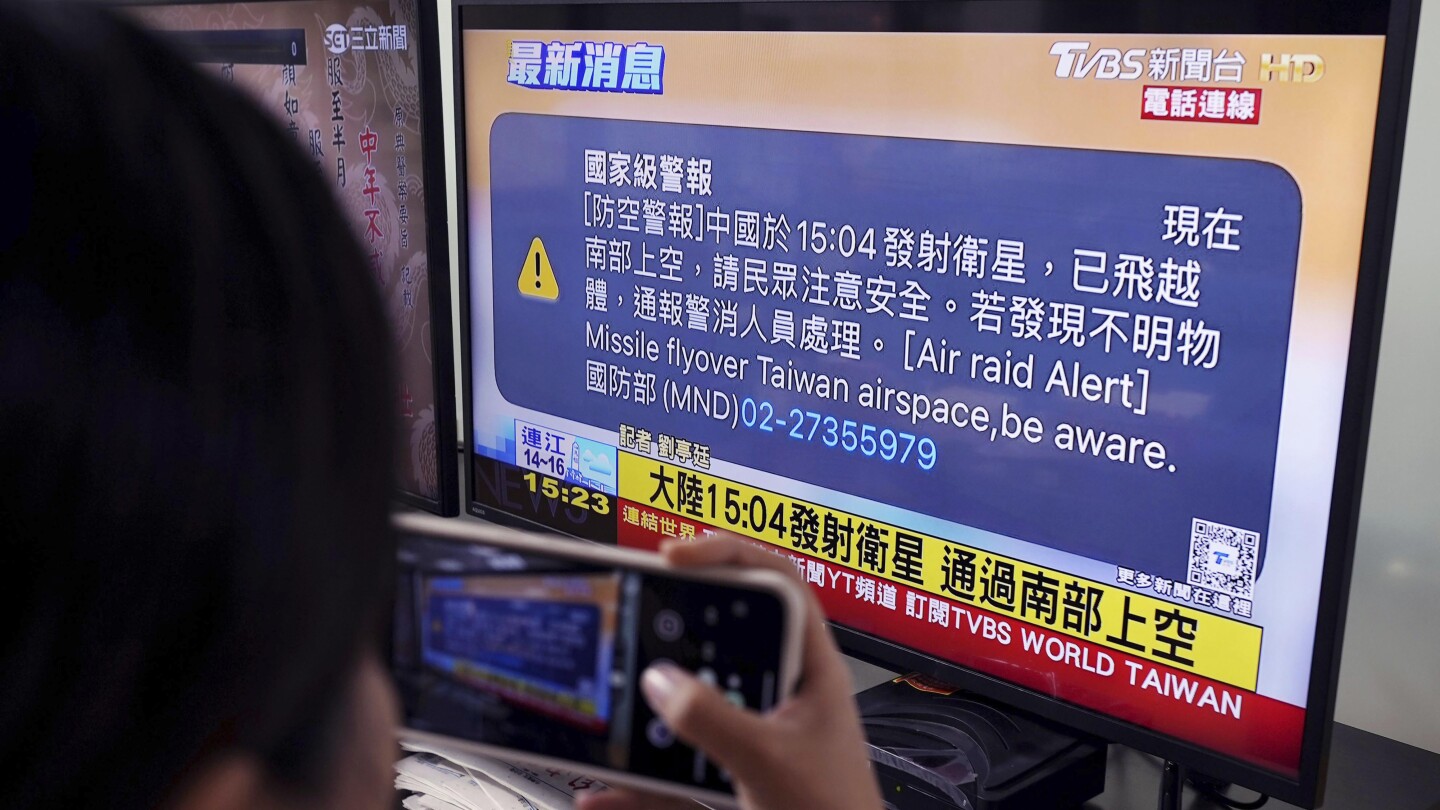TAIPEI, Taiwan (AP) — Taiwan’s Defense Ministry issued an alert Tuesday saying China has launched a satellite and urging caution days before the island’s elections.
Taiwan holds presidential and parliamentary elections on Saturday that China has described as a choice between war and peace.
The bilingual alert sent to residents’ mobile phones cautioned in English that there was a missile flyover. The Defense Ministry later issued a statement apologizing to the public for the faulty English translation and clarifying that China had launched a rocket carrying a satellite — not a missile.
The ministry said the Chinese rocket flew over southern Taiwan at high altitude.
Chinese state media reported that the country launched a satellite called Einstein with a Long March 2C rocket from the Xichang Satellite Launch Center in Sichuan province in southwestern China. Broadcaster CCTV said the satellite entered orbit and the launch was a success.
The alerts went off in the middle of an international news conference by Taiwanese Foreign Minister Joseph Wu. He clarified it was a satellite launch, told journalists not to worry, and proceeded with the news conference.
“We need to stay responsible; we need to stay moderate in order to prevent (a) conflict from happening between Taiwan and China,” he said.
Taiwanese President Tsai Ing-wen, who was in the southern city of Kaohsiung, urged the public not to worry, according to local media.
Beijing views Taiwan, which is about 160 kilometers (100 miles) off China’s east coast, as a renegade province that must come under its control.
Beijing has intensified its military harassment of the island inhabited by 23 million people in recent months, sending military vessels and aircraft near it almost daily. Beijing has also been flying balloons — which are feared to be used for surveillance — near the island despite Taiwan’s complaints.
China has repeatedly expressed its disdain for the front-runner in Taiwan’s presidential election, current Vice President William Lai of the Democratic Progressive Party. Beijing has called Lai “a destroyer of peace ” and a separatist, and favors the more China-friendly Kuomintang, or Nationalist Party, whose presidential candidate is Hou Yu-ih.
A third candidate from the smaller Taiwan People’s Party, Ko Wen-je, is also running in Saturday’s election.
___
Associated Press video journalists Johnson Lai and Taijing Wu contributed to this report.

